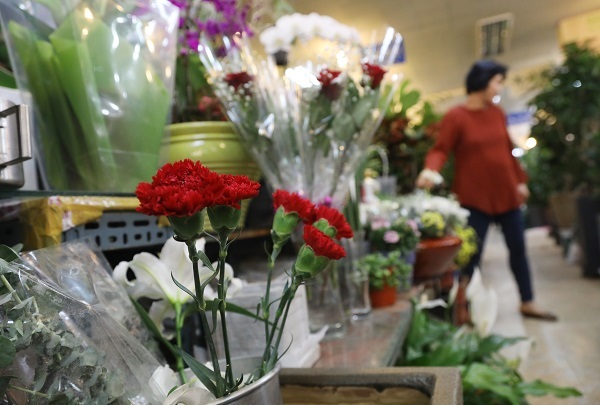Anti-graft law causes confusion ahead of Teachers’ Day
By Bak Se-hwanPublished : May 14, 2017 - 15:36
The age-old tradition of giving gifts to teachers on Teachers Day on May 15 is now against the law in South Korea, but many parents still have no clue as to what extent the laws goes.
A series of questions bombarded the anti-graft watchdog’s official website Friday, asking whether giving a handmade carnation flower or a small gift valued at less than 50,000 won ($44.50) would be illegal under the anti-graft law.
The Kim Young-ran Act, named after the former Supreme Court justice who first drafted it, took effect in September as part of the government’s attempt to clamp down on bribery practices
That alone seems to have brought changes to the gift-giving culture especially in schools, where tradition holds that students prepare carnations on Teacher’s Day as a token of gratitude.
A series of questions bombarded the anti-graft watchdog’s official website Friday, asking whether giving a handmade carnation flower or a small gift valued at less than 50,000 won ($44.50) would be illegal under the anti-graft law.
The Kim Young-ran Act, named after the former Supreme Court justice who first drafted it, took effect in September as part of the government’s attempt to clamp down on bribery practices
That alone seems to have brought changes to the gift-giving culture especially in schools, where tradition holds that students prepare carnations on Teacher’s Day as a token of gratitude.

It bars civil servants, journalists and teachers, as well as their spouses, from accepting gifts and meals worth more than 50,000 won and 30,000 won, respectively, if there is a potential conflict of interest. Those who break the law face a jail term of up to three years or fine of up to 30 million won.
Teachers from kindergartens to high schools and university professors are imposed with stricter limits than other professions, forbidden from receiving all but the smallest gifts -- including both real and artificial carnations --regardless of price.
But the commission allows some exceptions, including paper carnations from a student representative who publicly offers them on behalf of the class, or from those who have moved to higher grades or graduated from the school and so no longer hold a potential conflict of interest, according to its guidelines.
Some ambiguity remains. It was unclear, for example, whether giving flowers to caregivers at private day care centers would be illegal.
“I heard the Kim Young-ran Act covers kindergartens and primary schools, but what about a day care center?” asked a 33-year-old mother with four children in the “Momsholic Baby” online community, where more than 2.5 million mothers exchange parenting information.
Caregivers working in both public and private day care centers are not included in the application of the law, according to the commission, as their occupation does not fall into the categories of “serving public duties.”
“In cases for day care centers, it is our recommendation to consult with their teachers first over the application of the law,” an official from the commission said.
Amid confusion and legal conflicts, many question the law’s constitutionality.
Petitions had been filed before the introduction of the act in 2016 on the grounds that the law threatened freedom of speech and allowed authorities too much interference into the daily lives of citizens.
The Constitutional Court dismissed the claims in July, pointing out “a widespread practice of illegal solicitation and accepting bribery.”
Kim Jae-cheol, a spokesman of the Korean Federation of Teachers’ Associations, said on May 7 in an interview with a local media outlet that the government should allow students’ to give gifts “as long as it follows the price guidelines of the Kim Yong-ran Act.”
“There is nothing wrong with students who want to express thanks to their teachers,” said Kim.
By Bak Se-hwan (sh@heraldcorp.com)








![[KH Explains] How should Korea adjust its trade defenses against Chinese EVs?](http://res.heraldm.com/phpwas/restmb_idxmake.php?idx=644&simg=/content/image/2024/04/15/20240415050562_0.jpg&u=20240415144419)










![[Today’s K-pop] Stray Kids to return soon: report](http://res.heraldm.com/phpwas/restmb_idxmake.php?idx=642&simg=/content/image/2024/04/16/20240416050713_0.jpg&u=)